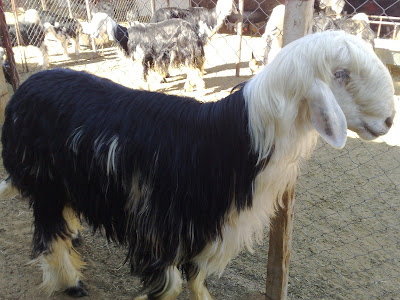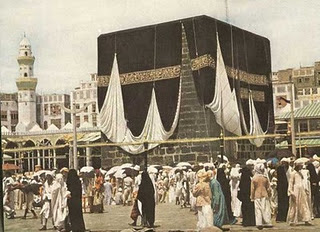In the Islamic faith, all children have the right to be clothed fed and protected until they are adults, to receive love and affection from their parents and to be treated as equally as their siblings.
These rights don't end when children become orphans, whose caregivers are primarily responsible for protecting orphans and instilling the values of the Qur'an and an appropriate reverence for God Almighty.
The Qur'an clearly sets a tone for the treatment of orphans in Islam: "Treat not the orphan with harshness" (Qur'an 93:9)
In the sense that the key posture toward orphans should be kindness, orphans belong to the entire community, and everyone takes responsibility for their welfare. Perhaps this can be attributed to a deep spiritual morality that demands Muslims be charitable toward less fortunate others, but the state of being an orphan takes on an even more profound meaning in the Islamic religion.
The Prophet Muhammad (saw) was an orphan, and some of the earliest verses of the Qur'an are devoted to his orphaned childhood. He is said to have himself adopted a former slave and raised him with the same care as if he were his own son.This practice offers some hope of reward later in their lives.
In hadith, or sacred text that delivers oral traditions about the Prophet Muhammad (saw), those who assist orphans are promised the companionship of the Prophet Muhammad in an afterlife (Paradise).
Additionally, if an orphan is wealthy, an orphan's guardian is responsible for protecting the orphan's inheritance until the orphan is legally able to assume control of it himself. The adoptive family is not allowed to combine an orphan's property or wealth with its own: "Give orphans their property, and do not substitute bad things for good. Do not assimilate their property into your own. Doing that is a serious crime." (Surat an-Nisa': 2)
There are consequences, the Qur'an teaches, for taking an orphan's property or giving them lesser grade or quantities of property than is rightfully theirs: "People who consume the property of orphans wrongfully consume nothing in their bellies except fire. They will roast in a Searing Blaze." (Surat an-Nisa': 10)
When orphans are adopted, Islamic practices direct guardians to protect orphan identities, as well, by allowing them to keep their birth parents' names. This preserves their heritage and establishes their connections with other living family members.
It is important to note that it is rare that non-blood relatives assume the care of orphans in Islamic culture. The rules of this faith, which deeply values kinship, require even distant relatives to be called on before a child is considered completely abandoned.
This system of caregiving is an ideal one that seems to ensure the only worry orphans should have is mourning or remembering their parents. It allows continuous stability and makes room for ample nurturing. Ultimately, it also helps to grow a healthy identity.Despite common misunderstandings about the Islamic faith, one thing is certain: Muslim orphans are not ever in a position to be alone.
These rights don't end when children become orphans, whose caregivers are primarily responsible for protecting orphans and instilling the values of the Qur'an and an appropriate reverence for God Almighty.
The Qur'an clearly sets a tone for the treatment of orphans in Islam: "Treat not the orphan with harshness" (Qur'an 93:9)
In the sense that the key posture toward orphans should be kindness, orphans belong to the entire community, and everyone takes responsibility for their welfare. Perhaps this can be attributed to a deep spiritual morality that demands Muslims be charitable toward less fortunate others, but the state of being an orphan takes on an even more profound meaning in the Islamic religion.
The Prophet Muhammad (saw) was an orphan, and some of the earliest verses of the Qur'an are devoted to his orphaned childhood. He is said to have himself adopted a former slave and raised him with the same care as if he were his own son.This practice offers some hope of reward later in their lives.
In hadith, or sacred text that delivers oral traditions about the Prophet Muhammad (saw), those who assist orphans are promised the companionship of the Prophet Muhammad in an afterlife (Paradise).
Additionally, if an orphan is wealthy, an orphan's guardian is responsible for protecting the orphan's inheritance until the orphan is legally able to assume control of it himself. The adoptive family is not allowed to combine an orphan's property or wealth with its own: "Give orphans their property, and do not substitute bad things for good. Do not assimilate their property into your own. Doing that is a serious crime." (Surat an-Nisa': 2)
There are consequences, the Qur'an teaches, for taking an orphan's property or giving them lesser grade or quantities of property than is rightfully theirs: "People who consume the property of orphans wrongfully consume nothing in their bellies except fire. They will roast in a Searing Blaze." (Surat an-Nisa': 10)
When orphans are adopted, Islamic practices direct guardians to protect orphan identities, as well, by allowing them to keep their birth parents' names. This preserves their heritage and establishes their connections with other living family members.
It is important to note that it is rare that non-blood relatives assume the care of orphans in Islamic culture. The rules of this faith, which deeply values kinship, require even distant relatives to be called on before a child is considered completely abandoned.
This system of caregiving is an ideal one that seems to ensure the only worry orphans should have is mourning or remembering their parents. It allows continuous stability and makes room for ample nurturing. Ultimately, it also helps to grow a healthy identity.Despite common misunderstandings about the Islamic faith, one thing is certain: Muslim orphans are not ever in a position to be alone.

















































